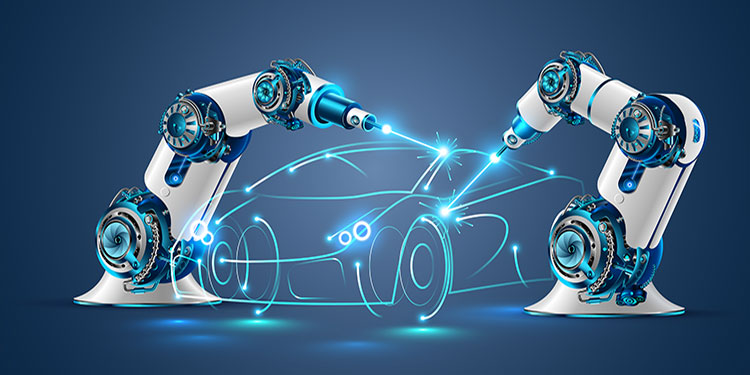
AI’s Role in the Future of RoboticsAI’s Role in the Future of Robotics Artificial intelligence (AI) is rapidly transforming the field of robotics, empowering robots with advanced capabilities that drive innovation and solve complex challenges. 1. Enhanced Perception and Navigation: AI algorithms enable robots to perceive their surroundings more effectively using sensors and cameras. Machine learning allows robots to adapt to dynamic environments, detect obstacles, and navigate autonomously in a wide range of conditions. 2. Decision-Making and Autonomy: AI empowers robots to make informed decisions based on data analysis and situational awareness. By leveraging deep learning and reinforcement learning, robots can develop strategies, solve problems, and operate independently in complex tasks. 3. Human-Robot Interaction: AI-powered robots can communicate and interact with humans more naturally. Natural language processing and computer vision allow robots to understand speech, interpret gestures, and engage in meaningful conversations. This enhances collaboration and improves user experience. 4. Advanced Manipulation and Dexterity: AI algorithms help robots refine their motor skills and manipulate objects with precision. By analyzing data from sensors and actuators, AI optimizes movements, reduces errors, and enables robots to perform complex tasks in delicate environments. 5. Learning and Adaptability: AI grants robots the ability to learn from experience and adapt to dynamic situations. Machine learning allows robots to continuously improve their performance, identify new patterns, and respond to changing conditions autonomously. Applications and Benefits: AI-powered robots offer immense potential in various fields: * Industrial Automation: Improved efficiency, accuracy, and safety in manufacturing and warehousing. * Medical Robotics: Enhanced surgical precision, personalized treatment plans, and assistive technologies. * Space Exploration: Autonomous navigation, scientific data analysis, and remote operations in extraterrestrial environments. * Consumer Electronics: Advancements in household robots, self-driving cars, and entertainment applications. Challenges and Considerations: * Ethical Implications: AI algorithms must be designed and implemented responsibly to address ethical concerns regarding privacy, bias, and accountability. * Job Displacement: Automation may lead to job displacement, requiring proactive measures to mitigate economic and societal impacts. * Data Security: AI systems rely on vast amounts of data, raising concerns about data privacy and cybersecurity. Conclusion: AI plays a transformative role in the future of robotics, unlocking advancements that push the boundaries of technology and human ingenuity. By enhancing perception, decision-making, and interaction capabilities, AI enables robots to perform complex tasks autonomously, collaborate seamlessly with humans, and drive innovation across multiple industries. While addressing ethical implications and other considerations is crucial, AI holds the key to unlocking the full potential of robotics and shaping a future where humans and machines work together to solve global challenges.
Posted inNews